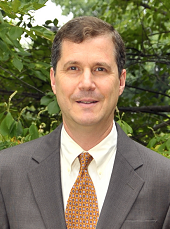ENME 809E/ENME 465 Probability-Based Design
Course Syllabus
Course Description
An introduction to Monte Carlo simulation with applications in engineering; short introduction to stochastic dynamic programming (related to real options).
Course Prerequisites
- Probability and Statistics course at the graduate level
- Calculus I or equivalent
- Some basic knowledge of Matlab
Course Texts:
- Simulation, by Sheldon M. Ross (Fifth Edition)- main text
- W. L. Winston,
Operations Research Applications and Algorithms (Fourth Edition) - this one is for the last module only on stochastic dynamic programming (you may not want to buy it since it's many pages and there are other sources on the web)
Course Objective
To provide an introduction to Monte Carlo simulation and stochastic dynamic programming emphasizing technical aspects as well as applications. There will be four learning modules in the course:
MODULE 1: BACKGROUND
MODULE 2: SIMULATION METHODOLOGY/BAYES THEOREM
MODULE 3: SIMULATION PROJECTs: #1, WIND POWER,#2 Manufacturing
MODULE 4: STOCHASTIC DYNAMIC PROGRAMMING, #3 Clean Energy
See "schedule and homeworks" for more details.
Instructor
Dr. Steven A. Gabriel
Office EGR 0151 D Martin Hall
Telephone (301) 405-3242; Fax: (301) 405-2585
sgabriel@umd.edu
Grading
The overall course grade will be derived from the following areas:
ENME 809E/ENME 465 Both
- 1 set of problems due after Module 1 (weeks 1-3), 1 set of problems due after Module 2 (weeks 4-7), 10% in total
- 1 pre-announced exam related to the homeworks (topics from Modules 1 & 2) 30% *
ENME 809E ONLY
- Projects: 3 Projects (2 on simulation, 1 on stochastic dynamic programming), 20% each=> 60% total
ENME 465 ONLY**
- Projects: 2 Projects (1 on simulation, 1 on stochastic dynamic programming), 30% each=> 60% total
Note:
* ENME 809E will have extra questions. ENME 465 students can try for extra credit.
** ENME 465 students get extra credit if both simulation projects successfully done.
Course Policies
Students are encouraged to attend all lectures since the exams and the homeworks will be closely related to material discussed in lectures.
Students will complete the exams by themselves and are encouraged to try the homeworks. The projects can consist of 1-3 people, pre-approved by Dr Gabriel.
The course is subject to the Code of Academic Integrity available on the web. The Code prohibits students from cheating on exams, plagiarizing papers, submitting the same paper for credit in two courses without authorization, buying papers, submitting fraudulent documents, and forging signatures.
The University has a legal obligation to provide appropriate accommodations for students with disabilities. Please inform Dr. Gabriel of any accommodations needed relative to disabilities. Also, University of Maryland policy states that students should not be penalized due to observances of their religious beliefs. Please inform Dr. Gabriel of such instances well in advance so that appropriate steps can be taken.
Short Bio on Dr. Gabriel
Academic Experience: Besides teaching at University of Maryland, Dr. Gabriel has held appointments in the Mathematical Sciences Department at The Johns Hopkins University, and in the Engineering Management and Systems Engineering Department at The George Washington University. In addition, he has served as a postdoctoral researcher in the Mathematics and Computer Science Division at Argonne National Laboratory.
Industry Experience: Dr. Gabriel has over 25 years of industry and academic experience involving mathematical modeling of engineering-economic systems with applications in energy, transportation, service performance, and operations management. His specialties include optimization/equilibrium modeling, econometrics, decision support systems, and software development. His most recent industry experience includes 5 years as a Project Manager at ICF Consulting (www.icfconsulting.com) involving projects with their oil and gas group (www.icf-oilandgas.com) as well as their electrical power group.
![]()
| Syllabus | Schedule & Homeworks | Projects |
